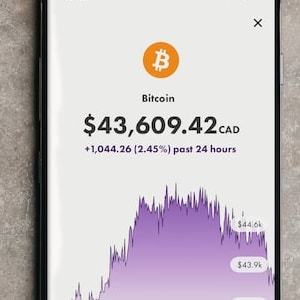make ends meet: Idiom Meaning and Origin
What does ‘make ends meet’ mean?
The idiom "make ends meet" means to manage financially with the income one has, even if it is barely enough to cover expenses.

Idiom Explorer
The idiom "tie up loose ends" means to complete unfinished tasks or resolve pending issues in order to achieve closure or a sense of completion.
The idiom "scrape along" means to manage to live or survive with little money or resources. It implies a struggle or difficulty in making ends meet.
The idiom "on the breadline" means to be in a state of poverty or financial hardship.
The idiom "on end" means continuously or without interruption.
The idiom "nip and tuck" means a very close and competitive situation where both sides are equally matched and it is difficult to determine who will win.
The idiom "nickel-and-dime" means to deal with small amounts of money, often in a trivial or inconsequential manner.
The idiom "most an end" means nearing completion or coming to an end.
The idiom "money's worth" means receiving value or benefit equal to the amount of money paid for something.
The idiom "make something of oneself" means to achieve success or become accomplished in a particular field, often through hard work and determination.
Survival Strategies
The ability to manage or survive within limited financial resources is commonly referred to in the English language as "making ends meet". This idiom implies the necessity of ensuring that one's income is sufficient to cover all necessary expenses and obligations, without incurring debt or facing financial hardship.
While the exact origin of this idiom is uncertain, it has become widely understood and frequently used in everyday language. The concept of making ends meet can be traced back to at least the early 17th century, as evidenced by written records from that time. However, it likely reflects a concern that has existed among individuals throughout history: the need to sustain oneself economically.
One theory suggests that the idiom may have originated from the ends of ropes used on ships. In old maritime practices, the ends of ropes were tightly secured to prevent unravelling and fraying. This metaphorical idea of "tying up loose ends" could symbolize the achievement of financial stability, where one's expenses are securely managed.
Another theory posits that the phrase may have derived from the literal act of joining together two ends of a string or thread to make it long enough for a specific purpose. In this context, "making ends meet" could refer to the act of combining resources or income from multiple sources to achieve financial sufficiency.
Regardless of its exact origin, the idiom "making ends meet" has gained popularity due to its brevity and simplicity. It easily integrates into everyday conversations about personal finances, evoking a universal understanding of the struggle and necessity of balancing income and expenses.
While "making ends meet" primarily refers to financial matters, it can also imply the effective management of other resources, such as time or assets. It symbolizes the continuous effort required to maintain stability and avoid insufficiency or bankruptcy.
The related idiom "make do" emphasizes the concept of adapting to limited resources and making the best of what is available. It indicates the ability to find creative solutions or alternatives when faced with financial constraints. "Make do" complements "making ends meet" by highlighting the resourcefulness and resilience needed to navigate challenging circumstances.
An additional related idiom is "break even", which signifies the point at which expenses and income are equal. "Breaking even" suggests achieving a level of financial stability where no profit or loss is incurred. This idiom is relevant to the broader discussion of making ends meet, as it represents a milestone in the journey towards financial security.
Similarly, "make do and mend" speaks to the necessity of repairing or repurposing existing resources rather than seeking new ones. This idiom encourages the utilization of available materials and skills to extend the lifespan and usefulness of possessions. "Make do and mend" aligns with the ethos of making ends meet by highlighting the importance of frugality and sustainable living.
The idiom "making ends meet" encapsulates the universal challenges of managing limited resources and maintaining financial stability. While its exact origin remains uncertain, its widespread usage reflects the ongoing relevance and importance of this concept in our daily lives. "Make do", "break even", and "make do and mend" are related idioms that further enrich the discussion surrounding the ability to navigate financial constraints and find sustainable solutions. Whether in financial matters or the effective management of other resources, the concept of making ends meet resonates with individuals across various contexts and time periods.
Example usage
Examples of how the idiom make ends meet can be used in a sentence:
- She works two jobs to make ends meet and support her family.
- With the rising cost of living, it is becoming harder to make ends meet on a single income.
- He took on freelance projects to help him make ends meet while searching for a full-time job.
More "Finance" idioms



